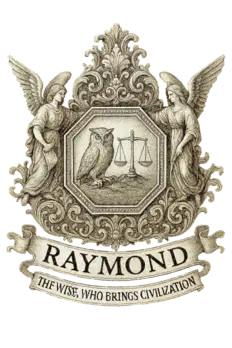Dipublikasikan: 30 September 2025
Terakhir diperbarui: 26 Oktober 2025
Dipublikasikan: 30 September 2025
Terakhir diperbarui: 26 Oktober 2025
Raymond Kelvin Nando — The Princeton Encyclopedia of Poetry and Poetics: Fourth Edition (2012), edited by Stephen Cushman, Clare Cavanagh, Jahan Ramazani, and a distinguished team of scholars, is one of the most authoritative and comprehensive reference works in the field of literary studies. Since its first publication in 1965, the encyclopedia has served as an essential resource for students, scholars, and general readers interested in the study of poetry and poetics. The fourth edition, published in 2012, represents the most expansive and updated version, reflecting the global scope and interdisciplinary nature of contemporary poetics.
This monumental work covers an extraordinary range of topics, including poetic forms, genres, movements, theories, schools, and traditions from around the world. From classical antiquity to contemporary experimental poetics, the encyclopedia offers detailed entries that illuminate the evolution of poetry as both an art form and a cultural practice. Each entry is written by leading scholars in the field, combining rigorous scholarship with accessibility for a wide readership.
One of the major strengths of the fourth edition is its global and cross-cultural approach. Unlike earlier editions, which were primarily focused on Western traditions, this edition significantly broadens its scope to include poetry from Asia, Africa, the Middle East, Latin America, and Indigenous cultures. This inclusivity reflects the recognition that poetry is a universal human endeavour, shaped by diverse histories, languages, and cultural contexts.
In addition to its geographical breadth, the encyclopedia is remarkable for its engagement with contemporary critical theories. It incorporates insights from structuralism, poststructuralism, feminism, postcolonial studies, ecocriticism, and digital media studies, among others. By doing so, it demonstrates how the study of poetry intersects with broader intellectual currents and responds to changing cultural and technological conditions.
The encyclopedia is not only a repository of information but also a guide to critical debates and interpretive frameworks. Entries on topics such as “Form”, “Voice”, “Metaphor”, or “Narrative Poetics” provide both historical overviews and analyses of ongoing theoretical discussions. Likewise, entries on national and regional traditions offer context for understanding how poetry functions within specific linguistic and cultural environments.
Another defining feature of the fourth edition is its attention to the relationship between poetry and other art forms, such as music, visual arts, and performance. It acknowledges poetry’s dynamic interactions with oral traditions, multimedia expressions, and the digital humanities. This broad vision underscores the encyclopedia’s commitment to situating poetry within the larger ecology of artistic and cultural production.
For students, the encyclopedia is an indispensable reference tool that provides clear explanations and bibliographies for further research. For scholars, it offers authoritative syntheses of complex topics and opens pathways for comparative and interdisciplinary work. For poets and general readers, it serves as a gateway to discovering the richness and diversity of poetic expression across time and space.
In sum, The Princeton Encyclopedia of Poetry and Poetics: Fourth Edition (2012) stands as a monumental achievement in literary scholarship. It affirms the enduring importance of poetry as a mode of human expression while expanding the horizons of poetics to encompass a truly global and interdisciplinary perspective.
The Princeton Encyclopedia of Poetry and Poetics: Fourth Edition (2012) — Download PDF
Download other ebook collections here
Disclaimer: I only share links that have been previously shared by others. To show respect, you are advised to buy the original published book from the author/publisher as a form of gratitude to them. Then, for authors/publishers who feel they do not agree to their books being shared on this site for free for the wider community, they can contact me via raymondkelvinnando@gmail.com, and I will be happy to remove it from this site. Thank you.
